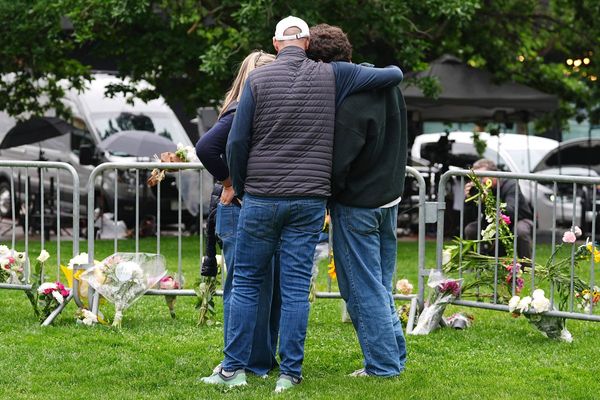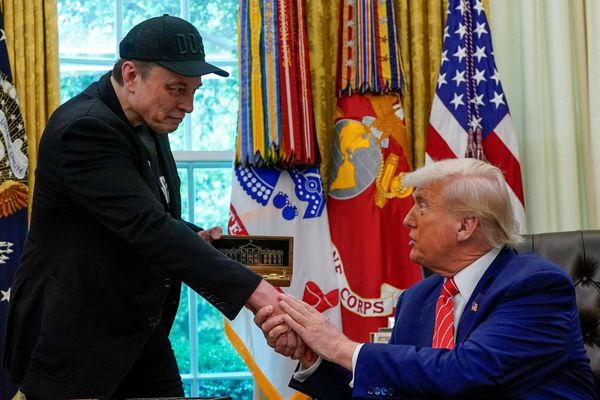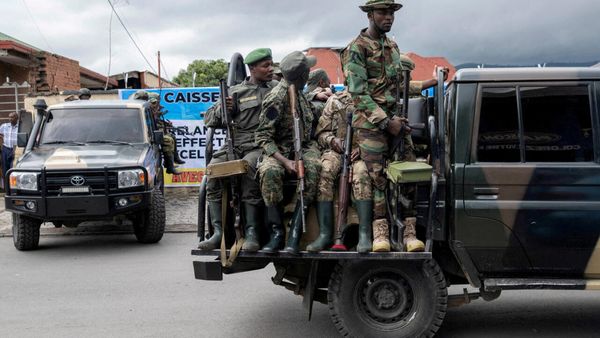President Donald Trump signed a proclamation on Wednesday banning the citizens of 12 countries from entering the United States.
The directive is part of an immigration crackdown Trump launched this year at the start of his second term, which has also included the deportation to El Salvador of hundreds of Venezuelans suspected of being gang members, as well as efforts to deny enrollments of some foreign students and deport others.
"We will not allow people to enter our country who wish to do us harm," Trump said in a video posted on X. He said the list could be revised and new countries could be added.
Follow The Independent’s live coverage of Trump’s travel ban here.
The proclamation is effective on June 9, 2025 at 12:01 am EDT (0401 GMT). Visas issued before that date will not be revoked, the order said.
Trump said in a social media address that a recent Molotov cocktail attack on Jewish activists in Colorado, allegedly carried out by an Egyptian man, highlighted the need for such restrictions.
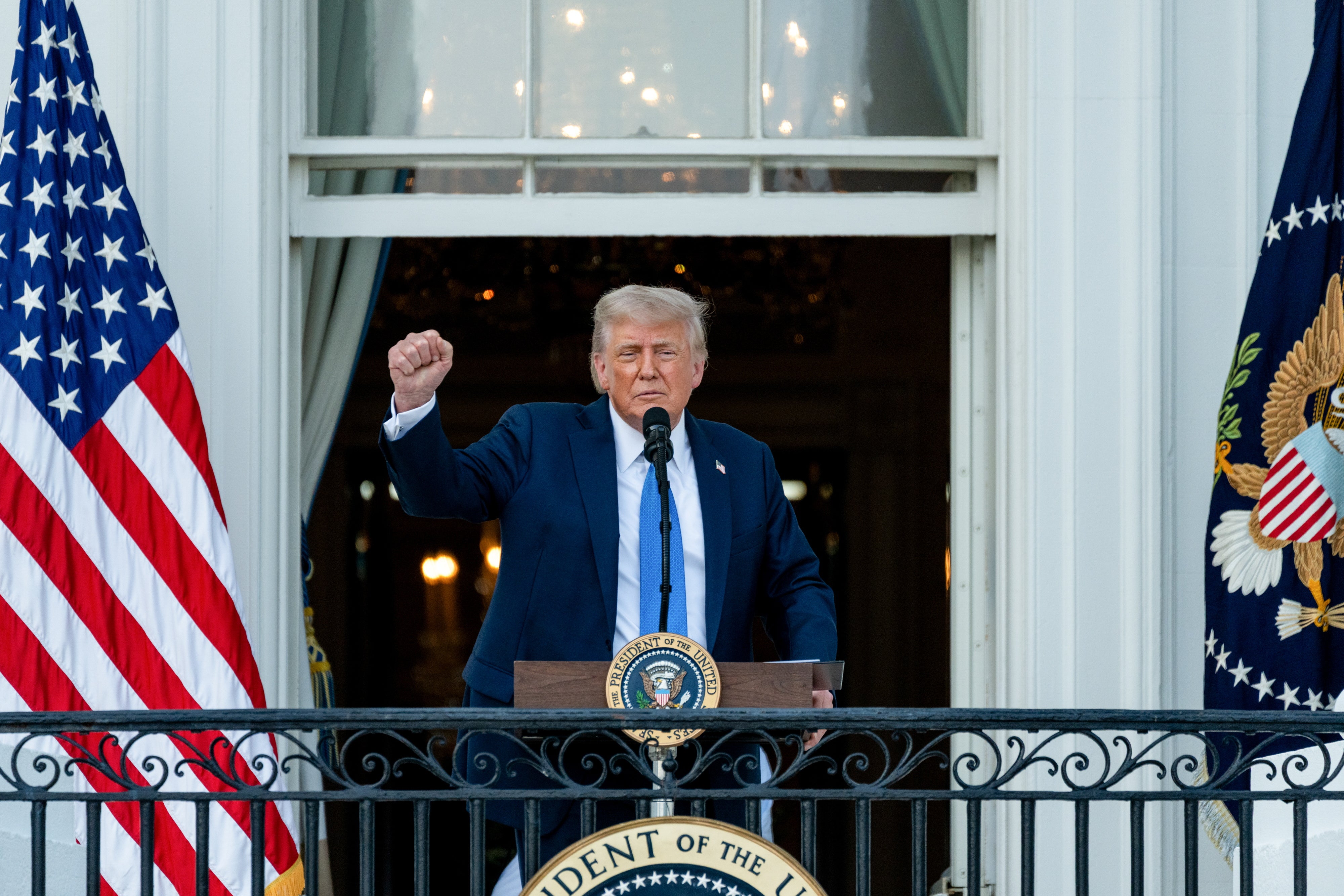
Mohamed Sabry Soliman, the alleged attacker, remained in the U.S. after his travel visa and subsequent work authorization expired, according to the government.
“The recent terror attack in Boulder, Colorado, has underscored the extreme danger posed to our country by the entry of foreign nationals who are not properly vetted, as well as those who come here as temporary visitors and overstay their visas,” Trump said from the Oval Office. “We don’t want them.”
During his first term in office, Trump announced a ban on travelers from seven Muslim-majority nations, a policy that went through several iterations before it was upheld by the Supreme Court in 2018.
Former President Joe Biden repealed that ban on nationals from Iran, Libya, Somalia, Syria and Yemen in 2021, calling it "a stain on our national conscience."
Trump said the countries subject to the most severe restrictions were determined to harbor a "large-scale presence of terrorists," fail to cooperate on visa security and have an inability to verify travelers' identities, inadequate record-keeping of criminal histories and high rates of visa overstays in the United States.
"We cannot have open migration from any country where we cannot safely and reliably vet and screen those who seek to enter the United States," Trump said.
What countries are included in Trump’s travel ban?
President Donald Trump cited a range of reasons for placing 19 countries under new travel bans or restrictions in the U.S.
They include allegations of lax screening of travelers, “a significant terrorist presence” in its territory, a government that wasn't cooperative enough in accepting deported citizens or residents who were prone to overstaying their visas in the United States.
Here are the 12 countries placed under the ban, and the seven placed under travel restrictions:
Banned from US travel:
Afghanistan
Trump’s proclamation declares that there is not a reliable central authority for vetting nationals who leave the country, or for issuing passports, therefore raising the risk of national security.
A spokesperson for the Taliban-led Afghan foreign ministry did not immediately respond to a request for comment.
Chad
Citizens from Chad were accused of having high visa overstay rates in the U.S., the proclamation said.
The high rate of visa overstays by immigrants from Chad, which has a population just under 20 million, showed a “blatant disregard for United States immigration laws”, the proclamation read.
Equatorial Guinea
The entry of immigrants to the US from Equatorial Guinea, a small central African country of under two million people, has been fully suspended by the U.S..
This is on account of the high rate of visa overstays, The White House said.
Republic of the Congo
The central African country of more than six million people sits west of the Congo River.
It was suspended for alleged high visa overstay rates, the proclamation stated.
Eritrea
The US says criminal records for Eritrean nationals are not available in the U.S., and accuses the country of refusing to accept back its “removable nationals”
Questioning the “competence of the central authority” and pointing to a high rate of visa overstay of Eritrean immigrants, the US has imposed a full ban on the northeast African country of around 3.5 million.
Haiti
The White House said in the proclamation that “hundreds of thousands of illegal Haitian aliens flooded into the United States during the Biden Administration”.
The increase in migration from Haiti has increased national security rates and the establishment of criminal networks, it said, adding that Haitian authorities do not sufficiently ensure its nationals do not undermine U.S. security.
Iran
Iran, one of the most powerful countries in the MIddle East with a population of 90 million, has a long history of tense relations with the U.S.
“Iran is a state sponsor of terrorism,” the proclamation reads. “Iran regularly fails to cooperate with the United States Government in identifying security risks, is the source of significant terrorism around the world, and has historically failed to accept back its removable nationals.”
Libya
The US alleges that Libya does not have a competent authority for issuing passports, adding that the “historical terrorist presence” in the country poses a risk to U.S. nationals.
A full ban has been imposed on the north African country.
Myanmar
Myanmar has failed to cooperate with the U.S. to “accept back their removable nationals”, the White House says, while immigrants from the war-torn nation have a high visa overstay rate in the US.
A full ban has been imposed on immigration from the southeast Asian nation.
Somalia
Somalia “stands apart from other countries in the degree to which its government lacks command and control of its territory”, the White House said.
The Trump administration has described the east African country as a “terrorist safe haven” which has refused to accept the return of its “removable nationals” and poses a threat to the U.S.
Sudan
Migration from Sudan, which the U.S. says has a high visa overstay rate and does not have appropriate vetting measures for its emigrants, has been fully suspended.
Millions of people have been displaced in Sudan and fled the country altogether, as it remains in the grip of a brutal civil war with devastating humanitarian consequences.
Yemen
The Yemeni government does not have physical control over its own territory, the U.S. says, and does not sufficiently vet those leaving the country, the proclamation states.
The U.S. has also engaged in military operations on Yemeni territory with the Houthi rebel group, it notes.
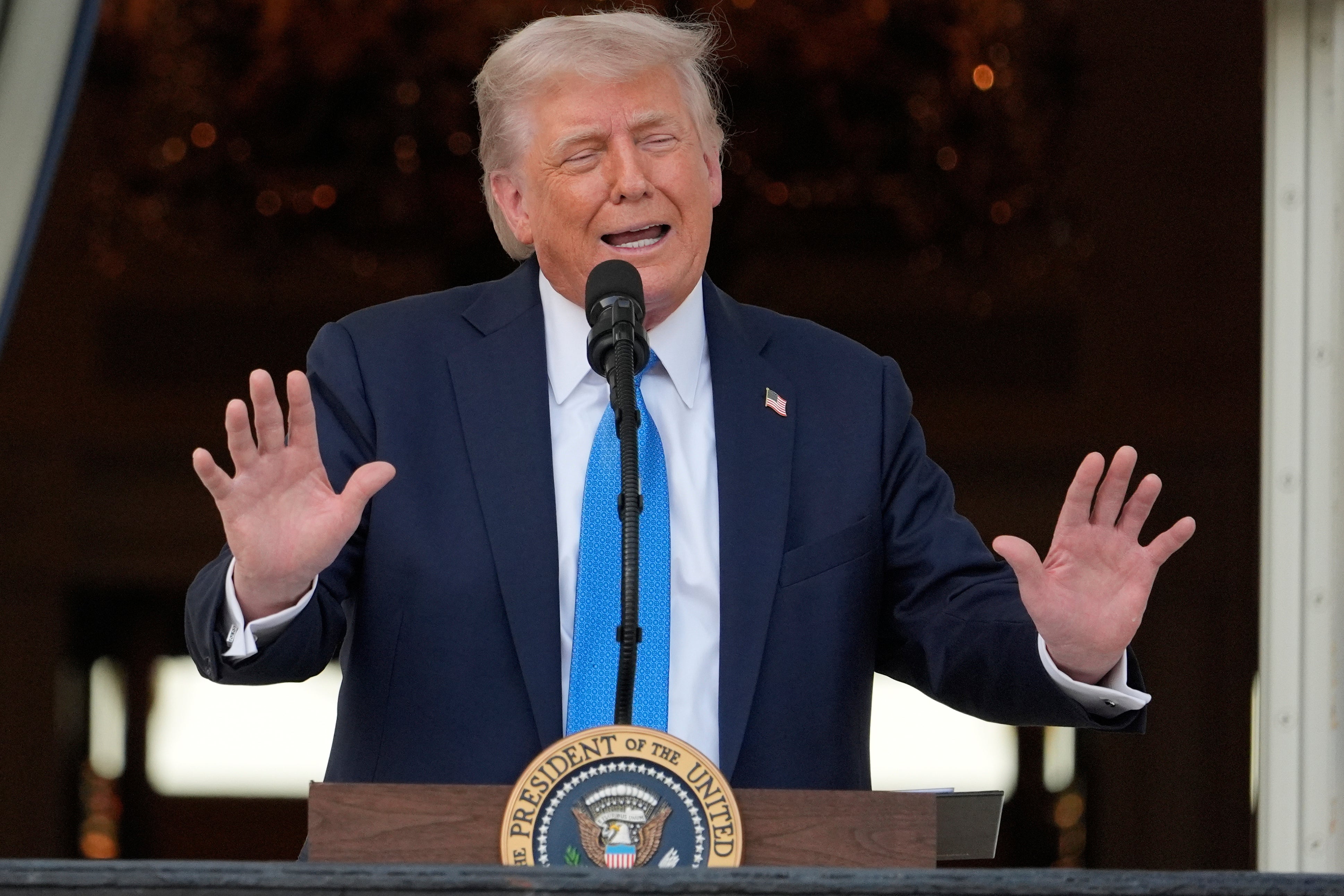
US Travel Restricted:
Burundi
Burundi, the east African country of 13 million people, has seen a partial ban on immigration of its citizens to the U.S.
The validity of nonimmigrant visas will be reduced as far as the law allows, the proclamation states.
Cuba
The Trump administration describes Cuba as a “state sponsor of terrorism”, adding that it fails to share “sufficient law enforcement information with the United States”.
Barack Obama had sought an easing of relations with Cuba on the back-end of his presidency, something which has since been reversed by presidents Trump and Biden.
Laos
Immigrants from Laos are accused by the U.S. of having high overstay rates. The country’s government does not accept back nationals who have been removed from the U.S., the proclamation adds.
Entry of nationals from Laos, the southeast Asian country of 7.6 million, has therefore been suspended.
Sierra Leone
Sierra Leone, the west African country where the U.S. attempted to bring peace during a civil war in the 1990s, has been added to the partial suspension.
The proclamation cites high visa overstay rates, and accuses the government of failing to accept returned immigrants.
Togo
Togo, in West Africa, has been added to the list on account of the high overstay rates of its immigrants to the U.S., the White House proclamation read.
“These restrictions distinguish between, but apply to both, the entry of immigrants and nonimmigrants,” Trump said.
Turkmenistan
Turkmenistan has also seen migration of its citizens to the U.S. restricted due to alleged high visa overstay rates.
The central Asian country has a population of 7.3 million.
Venezuela
As of January 2025, there were approximately 607,000 Venezuelans living in the U.S., according to the Migration Policy Institute.
The proclamation states that a high number of these immigrants overstayed their visa, and accused the country of failing to have strong vetting processes for its nationals who emigrate.

What has the reaction been so far?
Somalia immediately pledged to work with the U.S. to address security issues.
"Somalia values its longstanding relationship with the United States and stands ready to engage in dialogue to address the concerns raised," Dahir Hassan Abdi, the Somali ambassador to the United States, said in a statement.
Venezuelan Interior Minister Diosdado Cabello, a close ally of President Nicolas Maduro, responded on Wednesday evening by describing the U.S. government as fascist and warning Venezuelans of being in the U.S.
"The truth is being in the United States is a big risk for anybody, not just for Venezuelans ... They persecute our countrymen, our people for no reason."
A spokesperson for the Taliban-led Afghan foreign ministry did not immediately respond to a request for comment. Pakistan’s foreign ministry did not immediately reply to a request for comment on how it would handle the thousands of Afghans waiting in Islamabad who had been in the pipeline for U.S. resettlement.
Trump's presidential campaign focused on a tough border strategy and he previewed his plan in an October 2023 speech, pledging to restrict people from the Gaza Strip, Libya, Somalia, Syria, Yemen and "anywhere else that threatens our security."
Trump issued an executive order on January 20 requiring intensified security vetting of any foreigners seeking admission to the U.S. to detect national security threats.
